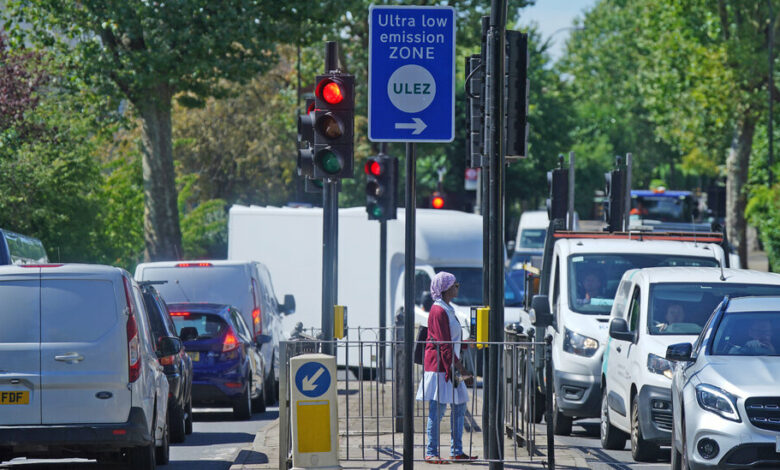Can the Labour Party bring back Britain’s green character?

Britain, the birthplace of the Industrial Revolution, a former coal-fired imperial behemoth, wants a ““clean energy superpower.”
That, at least, is the promise of the man set to become the next prime minister, Keir Starmer, whose Labour Party is set to win the general election on Thursday, ending 14 years of Conservative rule.
Labour made big campaign promises on climate. How that plays out will not only affect the daily lives of people in Britain, but also the country’s position in the world.
Britain is one of the biggest climate polluters in history. It is where the Industrial Revolution began in the 18th century, leading to a global economy powered by coal, oil and gas, and with them the greenhouse gases that are warming the planet. The speed and scale of Britain’s energy transition is therefore likely to be closely watched by other industrialised nations and emerging economies.
Britain likes to see itself as a global leader on climate. In 2008 it became the first major industrialised country to a climate change law. Emissions have fallen dramatically since then. In 2021, the government set a legally binding target to reduce greenhouse gas emissions by 78 percent in 2035compared to 1990 levels, in one of the most ambitious climate laws in the world.
But getting there is the hard part. The new administration will have to deal with a cost-of-living crisis at home, geopolitical turmoil abroad and a battery of extreme weather events exacerbated by rising fossil fuel emissions.
Here are three things to watch for as the new administration takes office.
What does it take to move away from fossil fuels?
Mr Starmer’s campaign manifesto promised “carbon-free electricity by 2030.”
Fortunately for him, the country is already moving in that direction.
It no longer relies on coal to generate most of its electricity. The last coal-fired plant is expected to close in September. Coal has gone from 40 percent of its electricity production in 2012 to almost zero, according to a analysis by Carbon Briefan independent climate news site.
The challenge now is to reduce dependence on gas. In 2023, it provided just over 30 per cent of the UK’s electricity. The government must reduce that to zero by 2030, or find ways to capture and bury the greenhouse gases produced by gas-fired power stations.
The Labour Party leaders have also said they want to double onshore wind capacity, quadruple offshore wind capacity and triple solar power.
Joss Garman, director of the European Climate Foundation, called the pledge of zero carbon electricity a “stretch goal” that would require changes to the laws governing the approval of wind and solar projects.
What does the future of North Sea oil look like?
Oil production in the North Sea is steadily decreased over the past 20 years and is expected to continue declining until mid-century.
However, the issue of oil and gas permits in the North Sea is a politically charged issue.
Last year, the incumbent Conservative Prime Minister Rishi Sunak said Britain should “maximise” North Sea oil and gas. He introduced a system issue new permitswhich led to the resignation of a former energy minister, who said it would cause “future damage”.
Mr Starmer’s party has indicated it will honour existing permits but not issue new ones.
Oil and gas companies in Britain already face a 75 percent tax. The incoming Labour government has said it will increase that slightly to 78 percent.
There’s another problem: Scotland.
Scottish nationalists have been pushing for greater control over oil and gas in the North Sea because it lies in Scottish waters. The fall in production there is likely to be felt first and most acutely by communities along Scotland’s north-east coast, which rely on the industry for jobs.
Will climate action remain polarizing?
Unlike the United States, there was broad political consensus in Britain on the need to tackle climate change. Climate action was even a Conservative darling.
Former Prime Minister Margaret Thatcher sounded the alarm about climate change. Theresa May, also a Conservative prime minister, led the fight for a net-zero target by 2050, meaning Britain would legally have to remove as much greenhouse gas emissions from the atmosphere as it injected into it by mid-century. In 2021, Boris Johnson’s government pledged to cut emissions by 78 percent by 2035.
Recently, that target has changed. Mr Sunak called the green transition too expensive. For example, the ban on new cars running on petroleum and diesel in 2030 was postponed until 2035.
Mr Starmer is likely to reinstate the ban until 2030. He has also promised to double funding for energy efficiency programmes and set up a new national energy company that he says will lower energy bill.
At the same time, there is pressure from the far-right Reform UK party, led by Nigel Farage, to drop the net-zero target in 2050 all in all, exit polls predict that Mr Farage’s party will have a surprisingly large position in Parliament, reflecting the rise of the far right across Europe.




